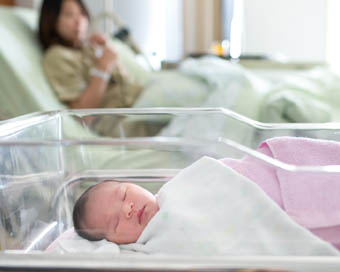Gallery
 PM Modi visit USA
PM Modi visit USA Only the mirror in my washroom and phone gallery see the crazy me : Sara Khan
Only the mirror in my washroom and phone gallery see the crazy me : Sara Khan Karnataka rain fury: Photos of flooded streets, uprooted trees
Karnataka rain fury: Photos of flooded streets, uprooted trees Cannes 2022: Deepika Padukone stuns at the French Riviera in Sabyasachi outfit
Cannes 2022: Deepika Padukone stuns at the French Riviera in Sabyasachi outfit Ranbir Kapoor And Alia Bhatt's Wedding Pics - Sealed With A Kiss
Ranbir Kapoor And Alia Bhatt's Wedding Pics - Sealed With A Kiss Oscars 2022: Every Academy Award Winner
Oscars 2022: Every Academy Award Winner Shane Warne (1969-2022): Australian cricket legend's life in pictures
Shane Warne (1969-2022): Australian cricket legend's life in pictures Photos: What Russia's invasion of Ukraine looks like on the ground
Photos: What Russia's invasion of Ukraine looks like on the ground Lata Mangeshkar (1929-2022): A pictorial tribute to the 'Nightingale of India'
Lata Mangeshkar (1929-2022): A pictorial tribute to the 'Nightingale of India' PM Modi unveils 216-feet tall Statue of Equality in Hyderabad (PHOTOS)
PM Modi unveils 216-feet tall Statue of Equality in Hyderabad (PHOTOS)The Badminton Association of India (BAI) has announced a 14-member-strong India squad for
- Men’s Sr Hockey Nationals to be played in division-based format from April 4
- Mensik denies Djokovic 100th title in Miami final
- KIPG: Son of a vegetable vendor, Bihar’s Jhandu Kumar eyes Worlds, 2028 Paralympics
- Hardik Singh credits hard work and team unity for receiving HI Midfielder of the Year award
- Djokovic, Alcaraz land in same half of Miami draw
Coronavirus does not spread from pregnant mothers to newborns: Study Last Updated : 16 Mar 2020 01:29:59 PM IST 
file photo Amid the novel coronavirus scare around the globe, some good news has emerged about the coronavirus. Chinese researchers have revealed that viral infection is not transmittable from pregnant mothers to newborns at birth.
The study, published in the journal Frontiers in Pediatrics, is the second out of China within the last month to confirm that mothers infected with coronavirus disease 2019 (COVID-19) during pregnancy did not infect their babies.All four mothers in the current study, which focused on the health of the newborns, gave birth at Wuhan's Union Hospital in China while infected. Wuhan in Hubei Province is believed to be the epicenter of the current outbreak.According to the researcher at Huazhong University of Science and Technology, none of the infants developed any serious symptoms associated with COVID-19 such as fever or cough, though all were initially isolated in neonatal intensive care units and fed formula.Three of the four tested negative for the respiratory infection following a throat swab, while the fourth child's mother declined permission for the test, the researchers said.One newborn did experience a minor breathing issue for three days that was treated by non-invasive mechanical ventilation. Two babies, including the one with a respiratory problem, did have body rashes that eventually disappeared on their own."It's impossible to conclude whether there's a connection between these other medical issues and COVID-19. "We are not sure the rash was due to the mother's COVID-19 infection," said study co-author Dr. Yalan Liu from Huazhong University of Science and Technology.In the previous retrospective study on nine pregnant mothers infected with COVID-19, researchers also found no evidence that the viral infection can pass to the child.All nine births were done by cesarean section. Three of the four pregnancies in the current study were also brought to term by C-section."To avoid infections caused by perinatal and postnatal transmission, our obstetricians think that C-section may be safer," Liu said."Only one pregnant mother adopted vaginal delivery because of the onset of the labor process. The baby was normal. Maybe vaginal delivery is OK. It needs further study," Liu added.In previous coronavirus outbreaks, scientists found no evidence of viral transmission from mother to child, but SARS and MERS were both associated with "critical maternal illness, spontaneous abortion, or even maternal death," according to Liu.The authors said further investigations into other aspects of potential COVID-19 infection in newborns and children are needed.For example, the sensitivity of the current diagnostic test for detecting the virus is about 71 per cent, so they suggest evaluating its reliability in children.Toward that end, the researchers are collecting additional samples from the newborns, including placenta, amniotic fluid, neonatal blood and gastric fluid, among others, to detect possible receptors for the virus.IANS Beijing For Latest Updates Please-
Join us on
Follow us on








172.31.16.186







